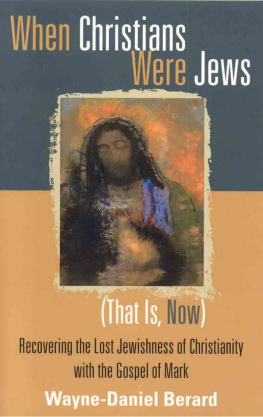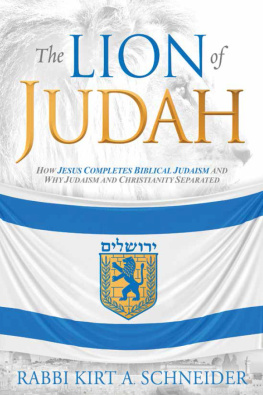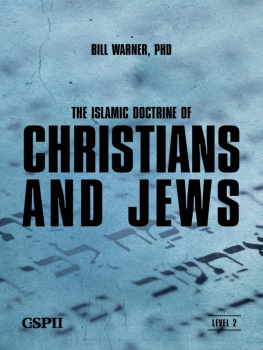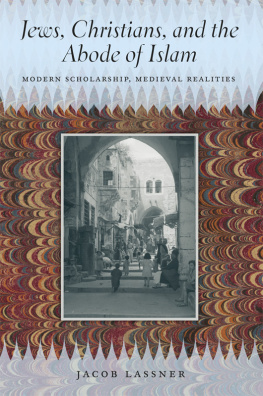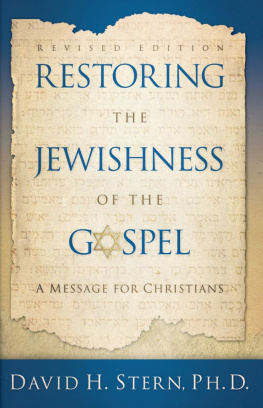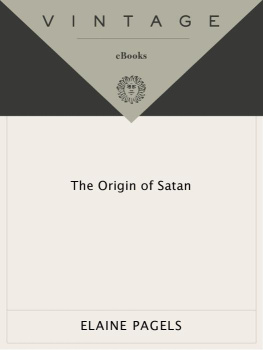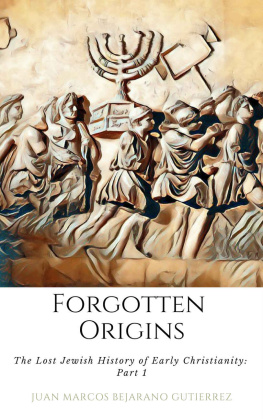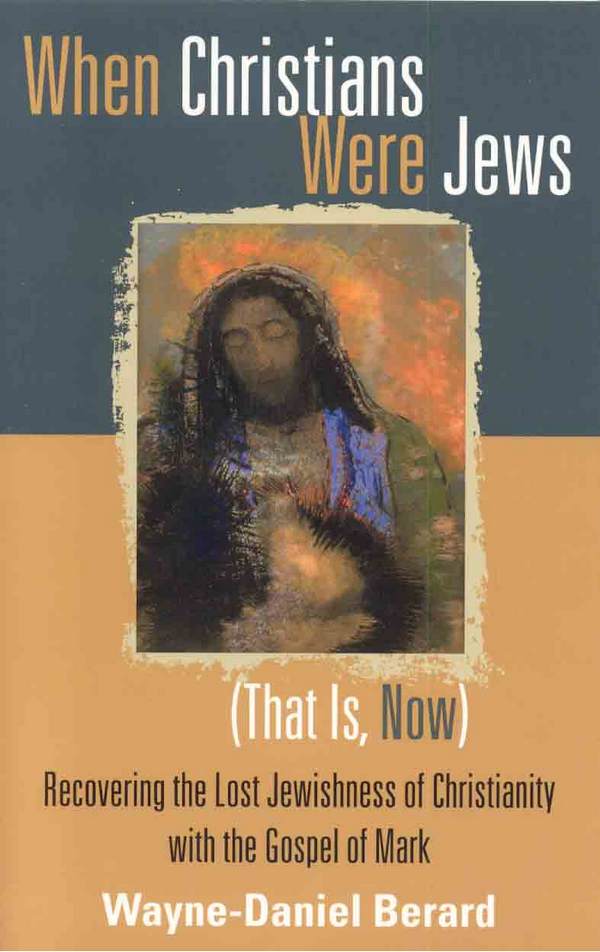Acknowledgments
THE DEEPEST GRATITUDE OF MY HEART IS EXTENDED TO ALL OF those who helped make this work a reality:
To Rabbi Alan Ullman, whose teaching is in each page of this book and whose friendship is in each page of my life.
To the members of the Inter-Faith Bible Study of Mansfield, Massachusetts: Cindy Blanchard, Christine Cassidy, Linda DAgostino, Anne and Bill Daunt, Tim Fox, Craig Hoyle, Chris Kiley, Linda Kiley (with special thanks for her invaluable notes), Amy Ruda, Pauline Sibilia, and Jim Woods. Our two-year exploration together of Marks Gospel essentially became this volume.
To the members of the Rank and Appointments Committee of Nichols College, Dudley, Massachusetts, particularly its Chair, Professor Louise Nordstorm, and Academic Dean Alan Reinhardt, for their gracious support of sabbatical leave to accomplish this work; likewise to President Debra Murphy, Professor Thomas Lelon, my Department Chair, Professor Jeffrey Halprin, and Andrea Becker for their encouragement and support.
To my students at Nichols, who in their responses and questions to this material have nurtured its growth and mine in ways unimagined.
To Brother John Doyle, CFX, for his enduring and invaluable friendship, and the opportunity to present many of the ideas contained here as a guest lecturer in his classes at Assumption College.
To Bill Milhomme for countless discussions on these topics over coffee or on walks, and for our brotherhood.
To the monks of Weston Priory, for providing a spiritual home for a wandering Jesus Jew, and for their continuing witness to that Jesus marginless God.
To Hanna Sherman, Daniel Sheff, Melissa Wenig, and Yoel Gordon, who teach by their caring example the fullness, depth, joy, and openness of Jewish life.
To Father Chris Renz, OP for creating opportunities. To Roy Carlisle for his invaluable encouragement, to Rob Hopcke for his advocacy, friendship, and editing skills, and to Michael Wilt and the Society of St. John the Evangelist for so fully embracing the manuscript and its author.
To Judy Cassidy for her loving support, and for listening to chapter upon chapter, read aloud for review.
To each of my children, the embodiment of Gods infinite love, and to all the Berards, Abbeys, Abramowitzes, and Abramses, for their unqualified support.
And most of all to my wife, the lovely Christine, who believes in me, loves me, and frees me always to be myselfin my writing and in all things. Matzati otah sheahav nafshi.
POSTSCRIPT
Beginning to Begin Again
On an open door a sign hangs: Closed. How do you explain it?
Yehuda Amichai
THE SECOND-CENTURY SAGE RABBI TARFON WAS KNOWN FOR saying, No one is asking you to complete the task, but you must begin it. For many Christians, the task of getting in touch with their own Jewishness may seem too daunting even to initiate. Where to begin? I have a recommendation for anyone wishing to start, at a practical level, the process of recovering his or her basic Jewishness. That recommendation is the sabbath, shabbat .
The sabbath is Judaisms great gift to a world which perhaps in its entire history has never needed it so desperately. It is much more than a rest break, a weekly recharging of batteries in order to then re-enter the world of mad stress. The word shabbat itself does not mean to rest, but to stop. In this sense, shabbat is as much a barometer as a relaxant; when asked how it can be known when one is on a good path, when ones spiritual life is healthy, Rabbi Alan Ullman, my teacher, often replies, When one can stop. The ability to stop completely whatever one is doing is, indeed, very restful, but it is not from the ending of action that the rest primarily comes, but in the overwhelming relief of non-identification with any set of activities, whether a job, or a sport, or even the writing of a book. The sabbath is restful because such identification, so difficult to avoid in a world that defines by actions, is nonetheless false. I may very well work at this career, center regularly on that activitybut if I were to stop working, swimming laps or running, parenting, or writing, I would not suddenly blink out of existence. I am not identical with what I do; I am the image of a God who could act, could create, but who could also stop, and still be God. The human being, the child of YHVH, is the closest thing to the infinite that exists in time and space. No set of activities can bound him or her, no job title, calling, or avocation define such an offspring. When we stop, regularly, once a week, we rest in ourselves , liberated from the constriction of being a something, and so rest in that God who looks like nothing, as Kushner says, the God beyond any image. We find that, contrary to popular belief or neurosis, we can stop doing and still be ourselves. Busy life no longer holds a lien against our souls. Ahhhh .
Shabbat , then, is an experience of our self, and so, of the one we image. The sabbath is made for man in the same way that we say two lovers are made for each other. In each others sweet presence, they are most truly themselves; content to be with each other, they need not do anything more. Indeed, one of my favorite prayers for Shabbat morning reads,
As lovers in each others arms,
Whispering each others name
Into the others ear
So we lie in Your arms,
Breathing with each breath
Your Name, Your Truth, Your Unity.
For Christians, that name is a Jewish name whose truth is its own Jewishness, and whose sense of unity with itself, with the Jewish people, and with men and women everywhere, grows stronger in the uncrowded light of shabbat . From sabbath stillness to sabbath stillness, our truest self begins to speak, as Mary Oliver puts it, with a new voice which you slowly recognize as your own. And if to pray is to consciously remain in Gods presence, then truly the sabbath is the essence and fulfillment of Jewish prayer.
Shabbat does not have to be kept on a Saturday, and, at the beginning, a half-day of rest might be all that we can bring our motion-dependent selves to attempt. Remember, we are not being asked to complete the task, but to begin. Judge not lest ye be judged is a very Jewish sentiment, and like all others, must first be applied to oneself. To beat oneself up over our attempts to keep shabbat is not to keep it holy. The sabbath is made for us.
Along with keeping shabbat , I would offer two other practical means of touching and recovering ones unrealized Jewishness. The first is the study of Torah with a capable teacher and guide; the second is the nourishment of oneself with Jewish authors who are both wise and accessible in their wisdom.
When Rabbi Hillel was asked to summarize the entire Torah while standing on one foot, he said more than What you do not want done to you, do not do to others. He also added, The rest is commentary. Now go and study. To Jews, to the Jewish Jesus, and therefore to the Christian soul, the Torah is much more than five books, the subject alternately of dry academic study or of iconistic devotion. For Jews, Torah is the very design of the created universe, including ourselves. Lawrence Kushner relates a very old tale about just this idea:
At the beginning of the beginning... God said, I need an overall plan for My world. I want it to be One, as I am One... I know what I will do, I will use Torah as a blueprint for creation and that way all the parts of the world will fit together, and I and my Torah will be inside everything!
I have, as the joke goes in academe, more degrees than a bad burn, but nothing in my undergraduate or graduate education resembled my experience in Torah study or prepared me for it. I found it intense without being at all intimidating, thorough but never picayune, incredibly open but not without center or ungrounded. There is a spot in one of the books of Douglas Adamss Hitchhikers Guide to the Galaxy series in which the main characters visit a house where the outside is in, and the inside out. Its outer walls are papered, furniture is set about them, and there are pictures and shelves attached to them. A sign over the door leading into the house reads: Step outside. Once through the door, it seems that the entire world is contained in its structure. There is no floor, but grass and sand; trees and plants grow, and the brick-faced walls angle out in such ways that the environment seems more spacious the farther in one goes. That is what studying Torah is like, except that one realizes that the house is within oneself, that we are built upon this very model.

